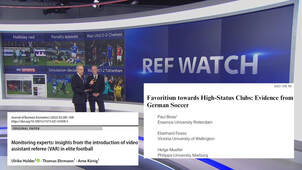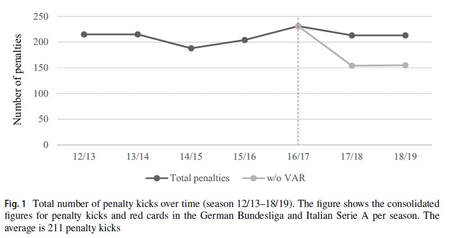
The key person in “Ref Watch” is a retired referee. A person who no longer referees EPL games. He is joined by a Sky employee and two former players. I don’t know if any of the latter three have qualified as a referee.
The disagreement between match-day officials and others (from the pre-VAR period) is examined in a paper published earlier this summer in the Journal of Law, Economics, & Organisations. In a paper worth reading, Paul Bose and his colleagues examine data on 13 seasons of Bundesliga games. There is a staggering difference between the views of the match-day officials and the statistics company representatives in the stadium. For example, match-officials awarded 704 penalties but the data coders in the stadium reckon there should have been another 620.
Again, I’m not sure if the data collector/coder in the stadium is a qualified referee. Nor do I know how much they are paid. Economists like to think that people get paid what they are worth. The referees in Bundesliga games are on a base salary of €80,000 and get an additional €5,000 per game. My guess is that the observer is lucky to get one-tenth of that figure per game. Therefore, if there is a disagreement on a decision who should we presume is more likely to be correct?
The referees’ payments in the above paragraph are taken from another recent paper published in the Journal of Business Economics. This paper examines the impact of VAR using Bundesliga and Serie A data. This paper allows us to see the bigger disagreements between referees. Below is Figure 1 from the paper.
It is hard to see disagreements over these decisions disappearing any time soon. Maybe Sepp Blatter was on to something when, arguing against more technology, he said we enjoy arguing about the correctness of decisions. These academic papers can inform those disagreements.

 RSS Feed
RSS Feed